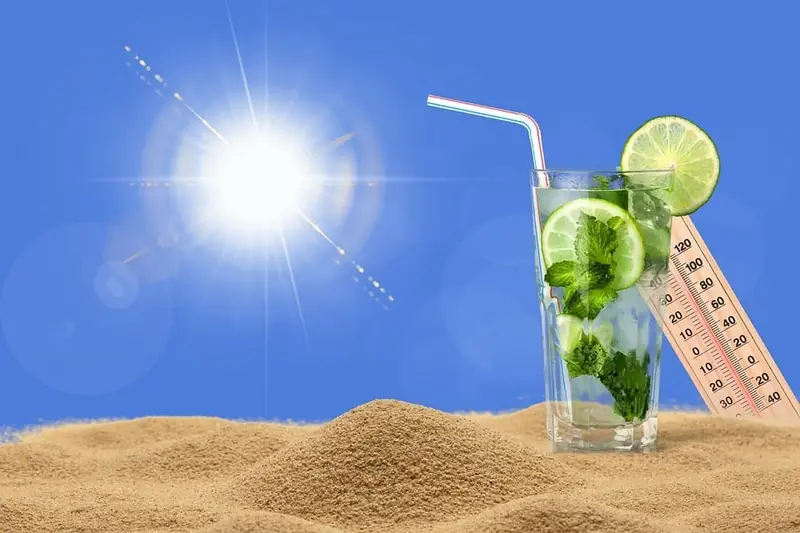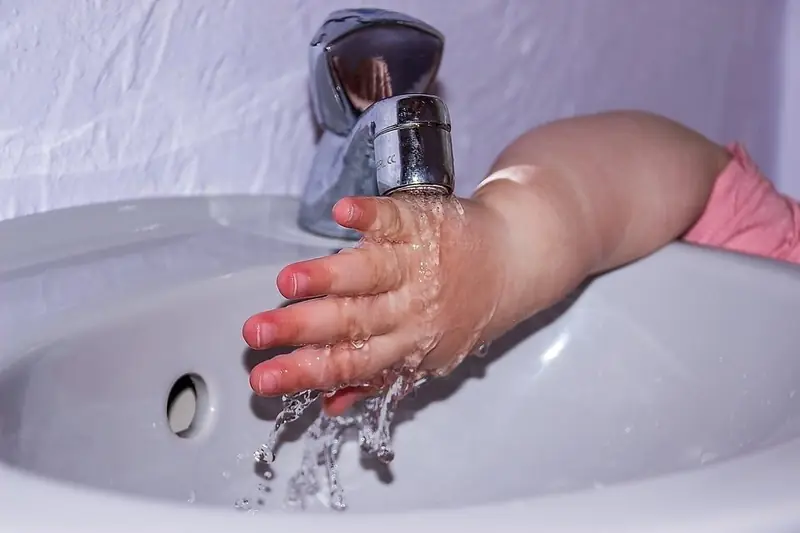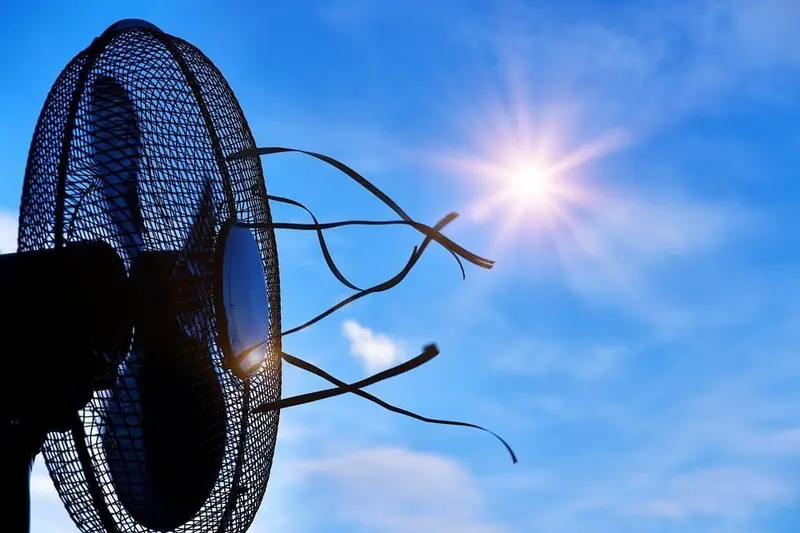
Even in early September, the heat is still quite intense. So the question “How can I cool down quickly?” remains relevant. An expert shares four amazing yet effective and scientifically backed methods to beat the heat.
Humans Aren’t Built for Heat
Professor Mike Tipton states that humans are simply not designed to perform manual labor in protective clothing under high temperatures or to sit in stuffy offices wearing suits. This is why the heat creates a working environment that people are ill-equipped to handle.
You’re probably familiar with the basic advice: drink plenty of water, stay in the shade, and close the curtains when it gets particularly hot. However, there are many other simple, scientifically proven methods that can help you cool down quickly and cope with the heat.
To Cool Down Quickly, Start with Your Hands
If you’re feeling hot and someone offers you a fan, you’ll likely first try to cool your face. However, Mr. Tipton says that this is far from the quickest way to lower your body temperature.
Of course, that breeze on your face will mimic cold receptors, providing a powerful sense of comfort. But in reality, it doesn’t help dissipate heat from your body, the expert tells Sciencefocus reporters.
 Instead, a better cooling strategy is to immerse your hands in cold water for 15-20 minutes. Your hands have a large surface area relative to their mass – a lot of blood flows through them during heat. If your internal temperature is high, your body will send blood to your extremities to lose heat.
Instead, a better cooling strategy is to immerse your hands in cold water for 15-20 minutes. Your hands have a large surface area relative to their mass – a lot of blood flows through them during heat. If your internal temperature is high, your body will send blood to your extremities to lose heat.
Submerging your hands in cold water may not feel as pleasant, but it cools you down much faster than even an ice bath. According to Mr. Tipton, it’s crucial to distinguish between things that make you feel better and things that actually help.
Avoid Cold Showers for Quick Cooling
Of course, jumping into a cool shower might seem like the best idea on a hot summer day. However, surprisingly, plunging your entire body into cold water is a very slow way to cool down during a heatwave.
Mr. Tipton advises placing one part of your body in cold water – that’s fine, but if you cover too large an area, your body will actually reduce the amount of blood reaching your skin. The secret to cooling is to bring blood to the surface of the skin and then gently dissipate the heat.
 In short, it’s better to opt for a cool shower rather than an ice bath. The ideal temperature will depend on your body and the heat outside. However, Mr. Tipton suggests that relatively warm water is the best option.
In short, it’s better to opt for a cool shower rather than an ice bath. The ideal temperature will depend on your body and the heat outside. However, Mr. Tipton suggests that relatively warm water is the best option.
The professor states that for quick cooling, you need water that provides and maintains maximum skin flow. Therefore, you should maximize the temperature difference between your body and the water without restricting blood flow to the skin.
Choose Hot Drinks to Cool Down Quickly
This may sound very strange, but it works. A warm drink can help you cool down faster than consuming ice-cold water. Mr. Tipton explains that it’s not about trying to directly cool your body, but rather activating systems like sweating and blood flow to the skin. This is how a hot drink cools the body.
This doesn’t mean you should only drink hot liquids. Staying hydrated with water at any temperature helps cool the body through sweating and heat transfer from active tissues to the skin. Just remember that gulping down water from the fridge is unlikely to quickly lower your internal temperature, notes Professor Tipton.
 However, there is one major caveat to this hot drink tactic. Caffeine, along with alcohol, can increase your body’s metabolic rate, causing it to produce more heat. Additionally, caffeine acts as a diuretic, leading to faster fluid loss from the body compared to other beverages. Therefore, peppermint tea might be the best choice in this case.
However, there is one major caveat to this hot drink tactic. Caffeine, along with alcohol, can increase your body’s metabolic rate, causing it to produce more heat. Additionally, caffeine acts as a diuretic, leading to faster fluid loss from the body compared to other beverages. Therefore, peppermint tea might be the best choice in this case.
Increase Sweating with a Breeze to Cool Down Faster
Waving yourself when it’s hot may not seem like advice that can truly help. However, it’s important to fan as wide an area of your body as possible.
As Mr. Tipton points out, a fan doesn’t cool the body by simply displacing warm air that contacts the skin – it also promotes the evaporation of sweat. By only fanning your face, you limit the evaporation to a very small part of your body.
 Professor Tipton notes that during extreme heat, the only real way to cool the body is through sweating. This is because sweat evaporation doesn’t actually depend on temperature – it relies on the pressure difference of water vapor between the air and the skin.
Professor Tipton notes that during extreme heat, the only real way to cool the body is through sweating. This is because sweat evaporation doesn’t actually depend on temperature – it relies on the pressure difference of water vapor between the air and the skin.
This is where a fan or ventilator comes in handy. If possible, consider using a non-electric handheld fan to create a breeze or facilitate natural airflow by opening several windows.
